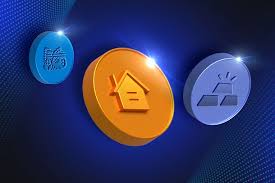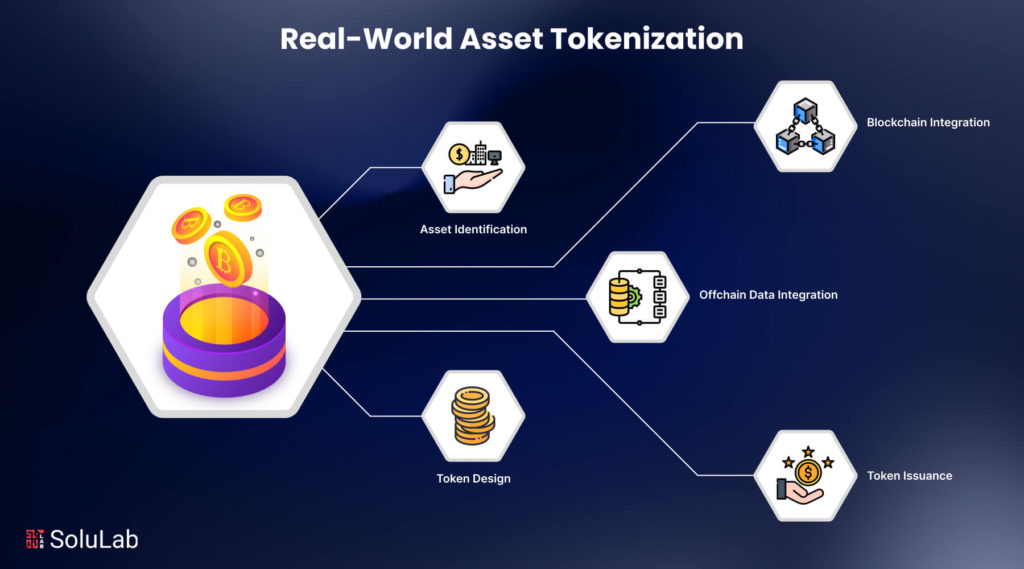
The rise of blockchain technology has ushered in a new era of investment opportunities, with tokenized real estate standing out as a significant innovation. This novel approach allows assets in the real estate sector to be divided into digital tokens, making property investment more accessible, liquid, and efficient. In this article, we will delve into the concept of tokenized real estate, its benefits, challenges, and the potential it holds for the future of property investment.
What is Tokenized Real Estate?
Tokenized real estate refers to the process of converting ownership rights in a property into digital tokens recorded on a blockchain. Each token represents a fraction of ownership in the asset, allowing multiple investors to hold shares in a property. This fractional ownership model democratizes real estate investment, enabling individuals to invest in high-value properties with lower capital outlays.
How Tokenization Works
The process begins with the creation of a smart contract on a blockchain, which outlines the terms of the investment, including ownership rights, profit distribution, and governance structures. Once the smart contract is established, it enables the issuance of tokens that represent shares of the property. Investors can then purchase these tokens through a decentralized platform, usually an Initial Coin Offering (ICO) or Security Token Offering (STO).
Benefits of Tokenized Real Estate
1. Enhanced Liquidity
Traditionally, real estate investment is characterized by its illiquidity. Selling a property can take months, if not years. However, tokenized real estate allows for the trading of tokens on secondary markets, increasing liquidity for investors. This liquidity can be particularly beneficial for those looking to exit their investments quickly or reinvest elsewhere.
2. Lower Barriers to Entry
Tokenization lowers the financial barriers to accessing real estate investments. Investors can purchase fractionalized tokens for a small fraction of the property’s total value, opening the gates for a more extensive pool of potential investors. This inclusivity can lead to greater diversification in investment portfolios.
3. Transparency and Security
One of the critical advantages of using blockchain technology for tokenization is the inherent transparency and security it offers. Transactions on a blockchain are immutable and auditable, reducing the risk of fraudulent activities. Investors can track their holdings and transactions with complete confidence.
4. Simplified Transactions
Tokenized real estate eliminates many of the cumbersome processes associated with traditional real estate transactions. Smart contracts automate key functions, such as distribution of rental income, ownership transfers, and compliance with regulations, streamlining the overall investment experience.
Challenges of Tokenized Real Estate
1. Regulatory Uncertainty

Despite its benefits, tokenized real estate faces significant regulatory hurdles. Real estate is a heavily regulated industry, and the introduction of blockchain technology complicates the existing legal framework. Regulatory bodies are still trying to understand how to classify and regulate tokens, creating uncertainty for investors and developers.
2. Market Adoption
The tokenization of real estate is still in its infancy, and widespread market adoption is required for it to thrive. Many traditional investors remain skeptical of blockchain technology, leading to hesitancy in embracing this model. Education and outreach efforts are needed to increase understanding and trust in tokenized real estate.
3. Technological Limitations
While blockchain technology is revolutionary, it is not without its technological limitations. Issues such as scalability, energy consumption, and network security must be addressed to ensure a smooth and efficient tokenization process. As blockchain technology matures, these challenges will hopefully be resolved.
Future Implications of Tokenized Real Estate
The potential implications of tokenized real estate are immense. As technology continues to evolve, we may see increased integration with digital currencies, advancements in virtual reality property showcases, and the emergence of decentralized finance (DeFi) platforms that allow for more complex investment structures.
1. A New Era of Real Estate Crowdfunding
Tokenized real estate could revolutionize the crowdfunding landscape by allowing property developers to raise capital from a global pool of investors. This could lead to more diverse property projects and investment opportunities, ultimately benefiting the real estate market.
2. Innovative Financing Models
As tokenization matures, new financing models will likely emerge. For example, property owners could leverage their tokenized assets for loans, enabling them to access funds while retaining ownership control. This could create a self-sustaining ecosystem within the real estate market.
3. Global Investment Opportunities
Tokenized real estate removes geographical barriers, allowing investors to diversify their portfolios by investing in properties worldwide. Investors in emerging markets may gain access to funds that were previously difficult to secure, driving growth and development in these regions.
Conclusion
Tokenized real estate represents a significant advancement in property investment, combining the resilience of traditional real estate with the innovative capabilities of blockchain technology. While challenges remain, the benefits of tokenization – including enhanced liquidity, lower barriers to entry, and increased transparency – offer exciting opportunities for the future of real estate investment.
As the industry evolves, the adoption of tokenized real estate will likely reshape the investment landscape, attracting more diverse investors and leading to more inclusive, transparent, and efficient property markets. As we move forward, staying informed and adaptable will be key to navigating this transformative space.




